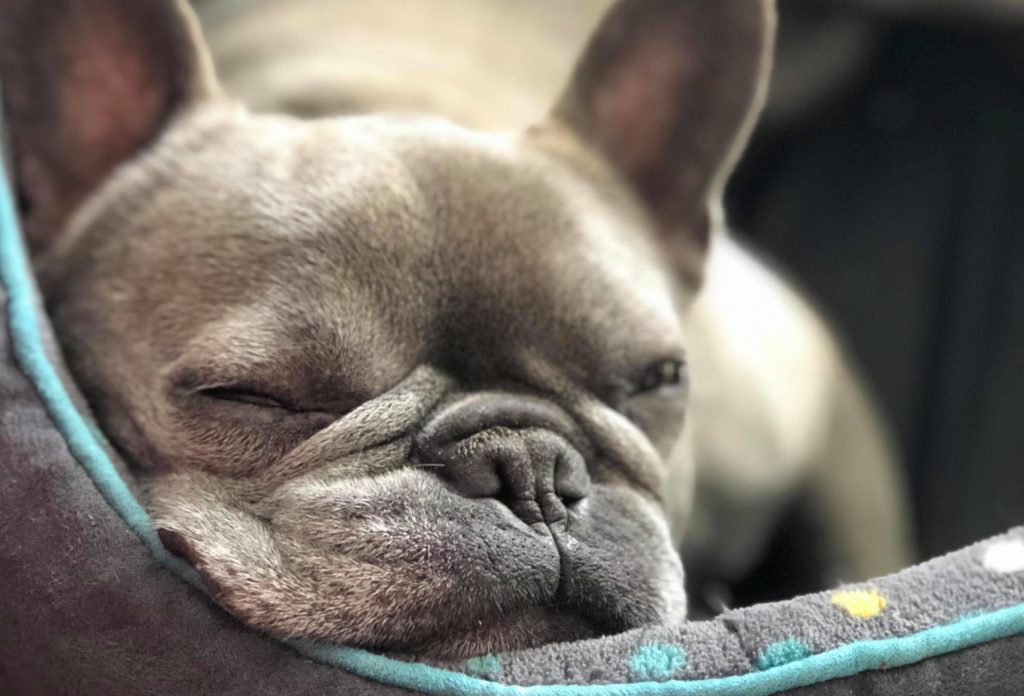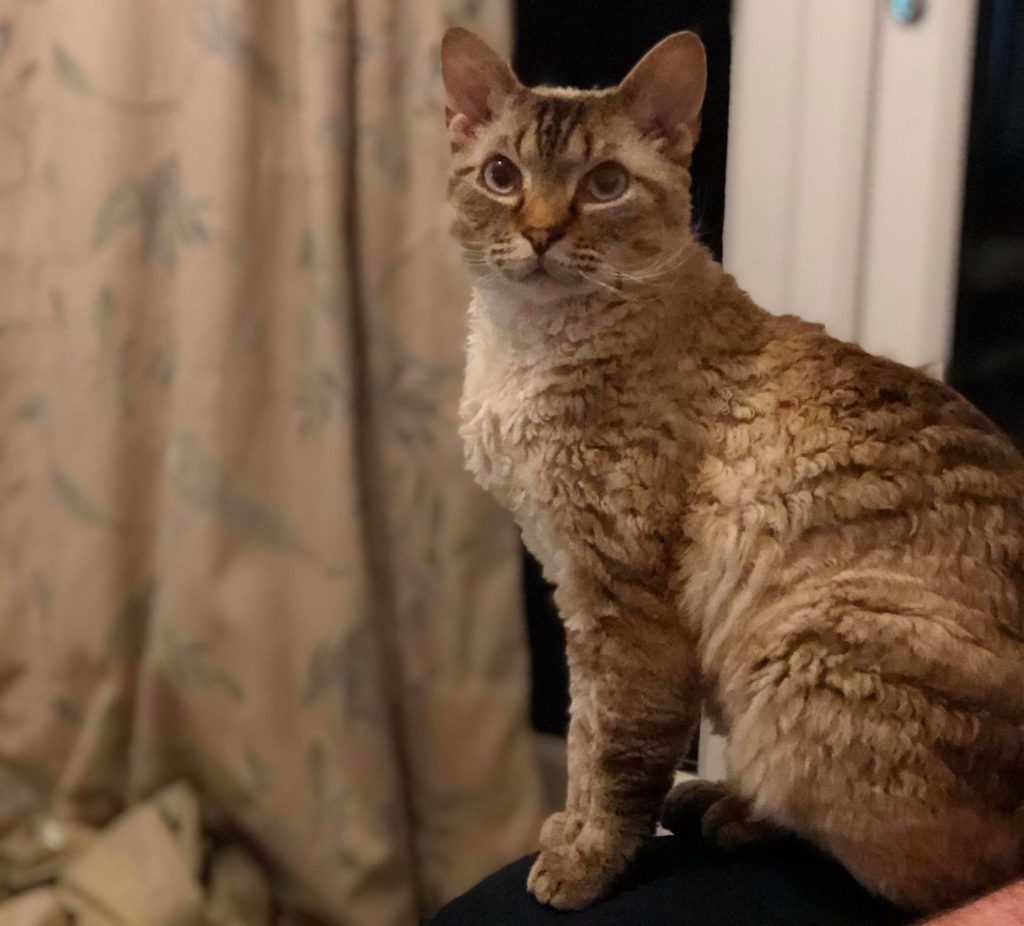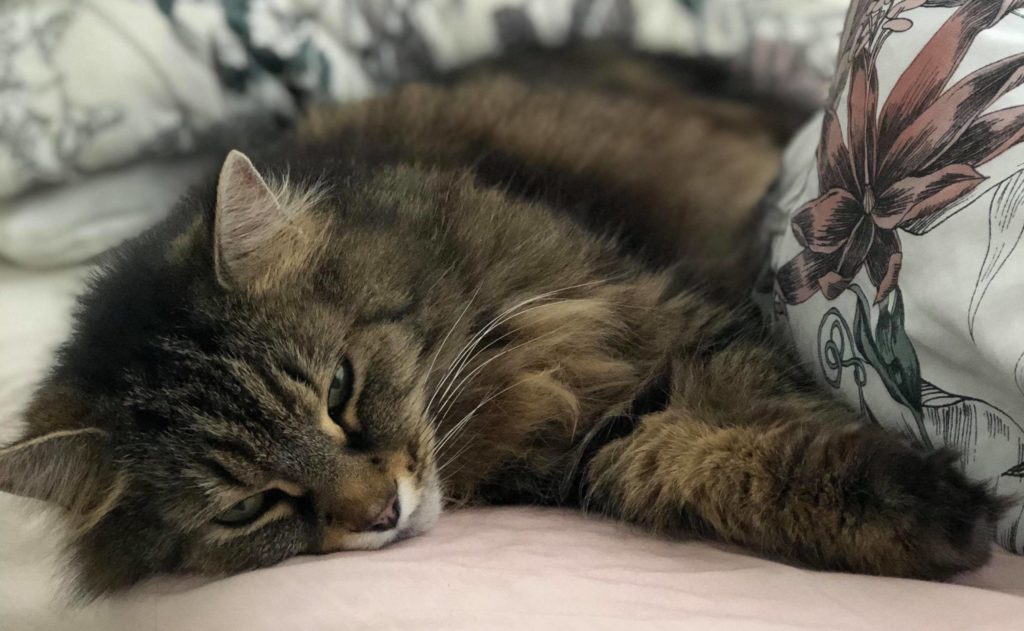Mae’r cynnwys hwn ar gael yn Saesneg yn unig.
I’ve always loved animals. As a child, my mother bought me a pram and doll for my 6th birthday but instead of pushing the baby around in the pram I immediately put my beloved toy dog Bonnie in there and refused to take her back out. I still have Bonnie, and she takes pride of place on top of my office bookshelves.
Fast forward
Now an adult, I share my life and home with several different animals: Bert the French Bulldog, Yolie and Oscar the cats, and Toothless and Hiccup the axolotls.

Bert the French Bulldog
As those of you who have read my blog posts before, I have bipolar disorder type II.
My moods vary from hypomanic (where I am excitable, wild-eyed and cannot sleep) to depressed (where I will struggle to wash, eat or otherwise take care of myself and I feel a sort of all-encompassing numbness).
There is a balance somewhere between the two that I seem to occupy most of the time these days, with the help of my community mental health team and long-term medications.
Not a new idea
Pets as therapy is certainly not a new concept. Many clinical areas, as well as care homes, now welcome visits from therapy animals, ranging from dogs to small ponies.
The late Carrie Fisher, who openly spoke of her struggles with bipolar disorder, had an amazing emotional support companion in the form of a French bulldog called Gary.
Although the research evidence base for the positive impact of animals on mood is still scarce, I feel that at least anecdotally that animals certainly have a positive impact on mine.

The majestic Oscar
As a society, we pride ourselves on being a nation of animal lovers, and who can deny following at least one social-media famous animal or enjoying watching videos of adorable animals as a balm against the competing demands of everyday life?
For me personally
My beloved pets have been of great comfort to me in both times of high and low mood. Even when I struggle to take care of myself, I take care of them.
It gives me a focus which helps to anchor me in times of emotional turmoil.
My cats and dog certainly seem to be able to sense when my moods are shifting to low; the cats will curl up on me in bed and Bert will sit on my feet and not leave my side. The axolotls remain indifferent but watching them swim and their tank is certainly relaxing.

Yolie the Maine Coon
Having Bert also helps me to stay a little bit active, even on days where I don’t feel like I can leave the house. Whether I want to or not, he must be walked.
Even just to the end of the road and back. I find that walking him allows me some time for quiet reflection, and even though I may want to stay indoors with every fibre of my being once I am done with the walk, I always feel better.
They’re my ‘happy place’
As I type this, my dog is fast asleep at my feet and his ears twitch as he dreams. I wonder what he dreams about?
For me, whenever I am asked to imagine my ‘happy place’, I think of walking along the beach by my house with my dog, the waves gently lapping at my feet as I throw the ball for him. The seagulls circle overhead, gently sculling the breeze as they call to one another.
Read more
- Mental Health Foundation – Pets and mental health
- More from Jo on the NCMH Blog – My name is Joanne – Managing my mental health at work
